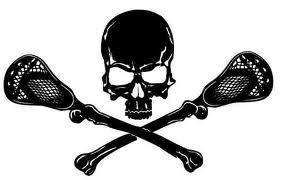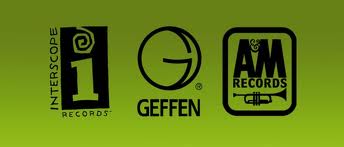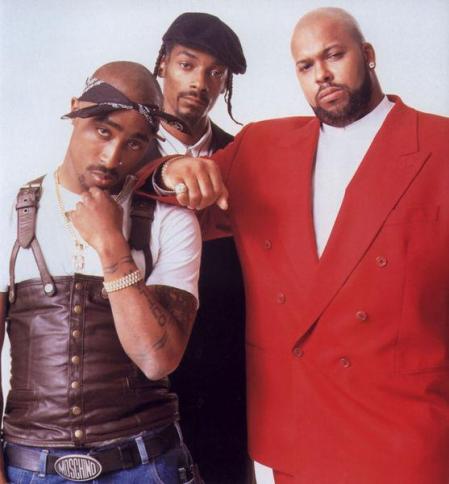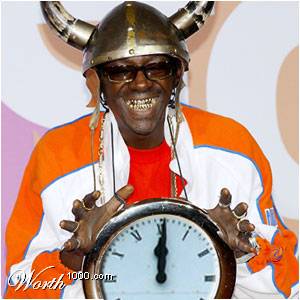I hate golf! I wanna Play Lacrosse!
16 Opi Rides Again – Club Med Sucks
Todays theme is revolutionaries and rebellion in rock versus the notion of “selling out”. First of all if you think this is gonna be another tome about the evils of selling out you are mistaken. my view is that rebellion and then selling out are part of a necessary cycle in rock and pop music. It’s like an ecosystem or an economic cycle. Boom and Bust. Feast and Famine. Necessary or everything stays the same. Nothing would progress.
I wouldn’t call my views a theory. Remember I was trained as a Mathematician so I don’t really believe that there are absolute truths or accurate models in any soft science. Further once you get down to the lower rungs of the social sciences and then go below that to pop music history/journalism, you can pretty much make up whatever you want and call it a theory if so inclined. I’m not inclined.This is just my handy way of looking at things. A playful framework. A cosmology.
The story of rock and all pop music is one of a dynamic interplay between the true revolutionaries, rebels and troublemakers and those that follow. In my cosmology three distinct groups follow the innovators. Those that then domesticate the sound,those that then defang it, and those that make it a tool of “the man”. This is an endless cycle so as soon as a revolutionary style or movement has been completely co-opted and become a tool of the establishment a new revolutionary cycle begins.
Revolutionaries>Domesticators>Defangers>Tools of the Man>Revolutionaries>Domesticators>….. got it?
I suppose my views only differ from your typical run of the mill music critic or pop theorist in two ways.
I believe:
1. The selling out process is not necessarily a bad thing
2. Any of the three selling out stages can produce great music. Especially the first selling out stage: domestication.
In fact the “great” rock artists usually credited as innovators are actually the domesticators.
The Beatles, The Rolling Stones, Led Zeppelin, The Clash, etc etc. The great works of all these bands were built on the works of earlier and remarkably similar innovators. But there is nothing wrong with that. The genius of these bands is not only did they make the innovations more powerful and sometimes palatable, they actually moved the audience and institutions towards their taste and sound.
Mudhoney>Pearl Jam>Stone Temple Pilots>Creed
Yardbirds>Led Zeppelin>Detective>Montrose
Too long ago? Too obscure? Ok how about over a longer period?
Yardbirds>Led Zeppelin>Black Crowes> Train
Another consideration there are also smaller cycles within these greater cycles. Subcycles. And sub-subcycles within those cycles. It’s all very Fractal if you delve into it deep enough. But that’s another discussion
As an example all disco music can be seen as a late Defanged stage of Funk. But the song Staying Alive by the Bee Gees is kind of a kick ass track within the genre. If a Disco song can be described as “powerful” this song is powerful. But the trick is it’s in the words. And when three dudes are singing in falsetto it’s hard to tell what they are saying.
There is another version of this song that John Morand and I mixed for the movie Kids. It brings the darkness in the song out. So within the Disco subcycle Staying Alive (1977) and the Bee Gees are domesticators. They aren’t the innovators but there is a lot more gravity to this song than a s song like Funkytown (1980)
Remember this is not an academic theory. It’s a playful framework for looking at artists within the bigger picture of Rock and pop music. Plenty of artists that were not revolutionaries or innovators have made great records. And plenty of artists that started out in the conservative part of a stylistic cycle later became revolutionaries and innovators.
+++++++++++++++++++++++++++++++++
Selling out is such a loaded term. But it’s partly because there is a real financial basis to the selling out part of the cycle of innovation in pop music. Let’s conduct a little mental exercise.
Interscope had the local Kinko’s design the sign in their lobby.
Consider the company that produced, manufactured and distributed an artists first “revolutionary” record. Could that company obtain capital through bank loans or bond sales? If yes this artist is NOT likely to be a true revolutionary or innovator. It is more likely that this artist is a domesticator. Again not a bad thing. This situation suggests that their is already a commercial pathway built for this artist to spread it’s influence. Likely this was built partially on the work of other similar artists.
Dude. There is no way in the world I’m making fun of these guys. And it’s pretty hard not to cause in this picture there is a man wearing a leather corset.
Conversely if that company had to rely on their own meager private capital, gangsters or other informal sources of capital, (like threatening to throw vanilla ice off a balcony.) Then the artist is more likely to have been a revolutionary. A true innovator.
I know this seems crazy but my little mental exercise seems to neatly and simply highlight the innovators and revolutionaries in rock and pop music.
Punk Rock. (an easy example)
Informal capital: SST records Black Flag
Formal capital: Geffen Blink 182.
Grunge (a subtle example)
Informal capital: Sub Pop Records. Mudhoney, Soundgarden, Nirvana*
Formal capital: Major Labels. Pearl Jam, Alice In Chains, Stone Temple Pilots
*theres a strong argument to make “Nevermind” the breakthrough record for Nirvana not Bleach. In this case Nirvana becomes a domesticator.
The Paisley Underground/1980′s hollywood psychedelic and americana movement (an obscure example)
Informal capital: Enigma records. Green on Red, Rain Parade, The Three O’clock , True West.
Formal capital: Slash Records. Dream Syndicate. Geffen. Lone Justice. Rough Trade (1989). Mazzy Star.
Hip Hop (the main course)
Informal capital: Ruthless Records NWA
Formal capital: Def Jam/Sony/CBS Public Enemy.
I got to admit this last one surprised me. I assumed i would be putting Public Enemy in the informal capital/innovator category. But i have to go with my theory. And upon reflection you are not really an innovator or revolutionary if you don’t really have a lasting influence. Ouch. But now that i’ve sat quietly and thought about it i got to say Public Enemy did not have much influence on Hip Hop. Compare the two production teams. Dr Dre (NWA) and The Bomb Factory (Public Enemy). I mean there is no comparison. Dr Dre virtually created two decades of Hip Hop.
Every year the Vikings fans get weirder and weirder. I mean I get the cheese thing with the Packers. But clocks and Vikings? I don’t get it.
Public Enemy seemed revolutionary at the time because of a little trick. A misdirection. They were overtly political and it’s easy to fool us into thinking an artist that is literally singing about revolution is revolutionary. But it just ain’t true. Also consider that Public Enemy had a lot of appeal among white children of the privileged elite and the music intelligentsia. Obviously it’s not very revolutionary when the elites are mostly the ones embracing you. I imagine this was very frustrating to Chuck D on some level ’cause I’m not sure that this was NOT who he was trying to address. In the end Public Enemy biggest contribution to pop culture ends up being Flavor Flav.
So finally bringing it home to Club Med Sucks. This song was in reaction to a similar situation.
By 1982 west coast hardcore was getting pretty stale. It was becoming a form of stylized rebellion. And in lieu of actual rebellion and revolution, we were getting a lot of lyrics about rebellion and revolution. Further it was the children of the privileged elite that were now embracing the punk movement. Sure signs of the inevitable decline.
My roomate Paul MacKinney, his girlfriend and I were all sitting in the Laundromat at College V B dorm at UCSC. The Laundromat walls were covered in punk rock and cliched lefty graffiti. It was Sunday night and we were doing our little ritual. Laundry and a can of Fosters. We were all just sitting quietly reading the graffiti. Suddenly Paul jumped up, started scrounging around in his bag and pulled out a marker. He then jumps up on the closest washing machine and scrawls across the wall “Club Med Sucks” followed by the Anarchy symbol. This was so funny that I did an actual spit take. It was perfect.
2 years later I was in that Laundromat again and I could still make out “club med sucks” underneath the latest whitewash. I knew then It was perfect fodder for a Camper Van Beethoven song. And more timely than ever. Within days it was a new Camper Van Beethoven Song. In the song we haveprivileged elite private school kids sing about not wanting to go to Club Med. Privileged elite kids sing about hating golf and wanting to play lacrosse. Opi Rides Again was always tagged on the front of this song to make the contrast into Club Med Sucks all the more jarring.
OPI RIDES AGAIN: (Instrumental)
[E]-[C]-[E]-[C]-[G]-[F#]-[B]-[A] [(REPEAT x3)]
[LINK:][C]-[D]
CLUB MED SUCKS:
[E]-[C]-[Bb]-[C(bass E)]
[E] I don’t have to go to [C] school for an entire [Bb] week [C(bass E)]
[E] I just want to go [C] down to Newport [Bb] Beach [C(bass E)]
[E] Mom and Dad want to [C] tell me where to [Bb] go [C(bass E)]
[E] They wanna go to [C] Club Med San Car-[Bb]-los [C(bass E)]
[E] Club Med sucks [C]-[Bb]-[E]
[E] Authority sucks [C]-[Bb]-[E]
[E] I hate golf [C]-[Bb]-[E]
[E] I wanna play la-[C]-crosse [Bb]-[E]
The people there, they are so stupid
They exploit the poor and the weak
I want no part of their death culture
I just wanna go to the beach
Club Med sucks
Authority sucks
I hate golf
I wanna play lacrosse
[E]-[C]-[Bb]-[E]-[E]-[C]-[Bb]-[E]-[E]-[C]-[Bb]-[E]-[E]-[C]-[Bb]-[E]
Club Med sucks
I hate golf
Authority sucks
I wanna play lacrosse





